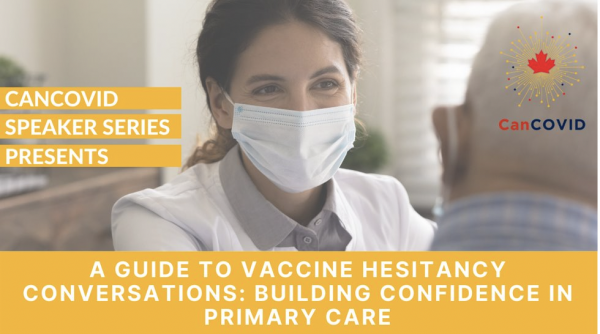Determinants of COVID‑19 vaccination hesitancy and ways to improve vaccine acceptance and confidence
Question: Vaccine development has been a key factor that can potentially end the COVID‑19 pandemic (1). However, the success will depend on the proportion of people being vaccinated (2). After the initial few months of COVID‑19 vaccination, what do we know about the determinants of vaccine hesitancy and how to improve vaccine acceptance and confidence?
Summary of Included Resources
Our review identified eight reviews, eleven individual studies, nine instances of ongoing research in Canada, and a list of 34 experts on vaccine hesitancy. The comprehensiveness of this summary may be limited given the rapid nature of our approach to conduct the evidence search and preparation of a summary of the documents retrieved. Only one review by Galanis et al. (2020) formally assessed the quality of the evidence using the Joanna Briggs Institute critical appraisal tools, which was moderate to good.
What do we know?
Vaccine hesitancy impacts the uptake COVID‑19 vaccination and is determined by myriad factors related to vaccine characteristics (3–6), socio-demographic factors such as income level (4,7–9), age (4,6,7), sex(8–10), education (7), employment (6), ethnicity (6,7), beliefs (4,5,8), and perception and trust in COVID‑19 vaccines (7,11,12). The infodemic of misinformation leads to distrust in science and affects individuals’ intent to get vaccinated (5,7,13).
What are the notable gaps?
- Most studies are cross-sectional, whereas the terrain of vaccine hesitancy is dynamic, and the trends need constant monitoring.
- There is a lack of implementation studies to develop and test interventions to increase vaccine confidence.
- Countering misinformation requires the development of communication strategies and research to understand better the pathways of social media influence on vaccine hesitancy.
What is on the horizon? What are the studies that are underway to address the gaps?
Dr.MacDonald’s study from the University of Alberta is studying the acceptability of COVID‑19 vaccines, thus documenting the evolving trends in vaccine hesitancy and associated factors. Three upcoming research studies by Dr. Rosberger, Dr. Kronfli and Dr. Ben-Shoshan from McGill University focus on developing and testing video based-interventions to increase vaccination rates. Dr. Colmegna and Dr.Gold, also from McGill University, are researching the promotion of trust-based strategies, engaging community members and healthcare workers. Simultaneously, Dr.Bettinger and Dr.Wessinger (University of British Columbia) are using qualitative methods such as interviews and digital ethnography to better understand the influence of social media on decision-making related to vaccines. Whereas, Dr. Bacon (Concordia University) and Dr.Lavoie (Université du Québec à Montréal) are assessing public awareness, attitudes, concerns and behavioural responses to COVID‑19 public health policies, including vaccination.





